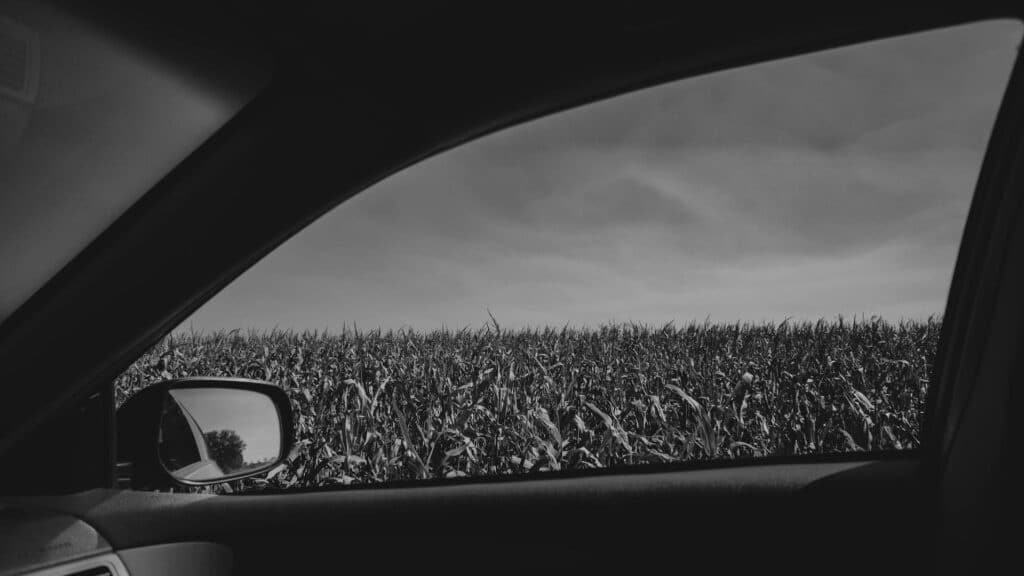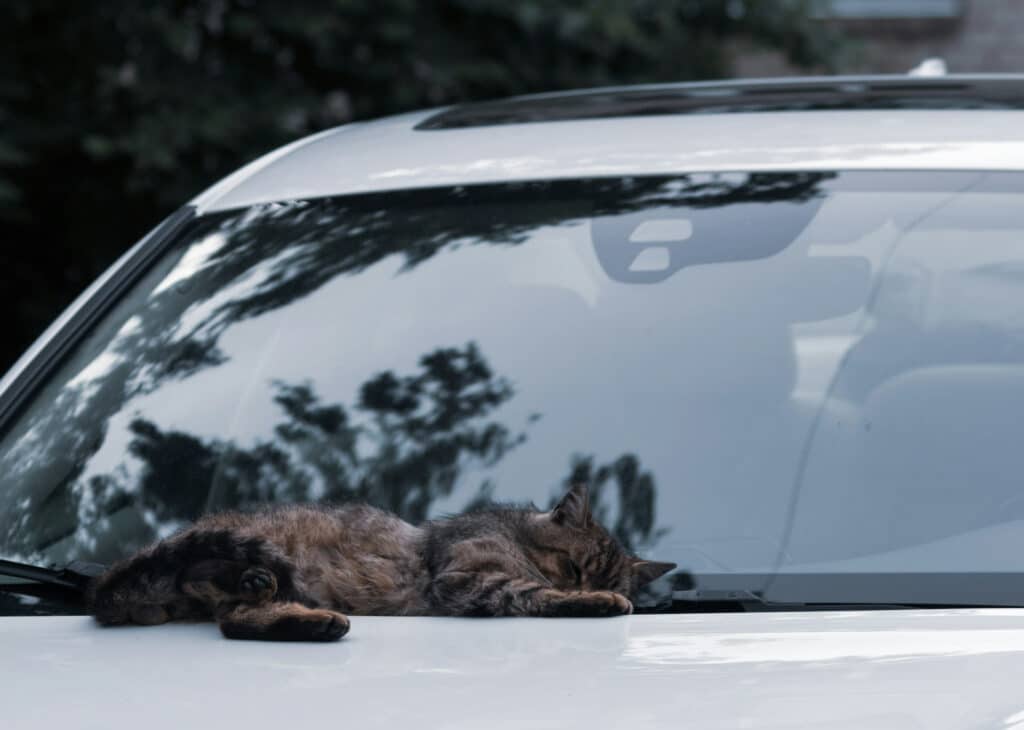Window tinting has always been a popular add-on for both style and functionality. There are rules regulations governing the legality of window tints—legal limits on how dark your windows can be.
But what if you have a legitimate medical condition that necessitates a darker or more reflective tint?
In the United States, individuals with medical conditions that require special consideration can apply for window tint medical exemptions or waivers. These accommodations allow you to install tints that surpass the standard legal limits.
Whether it’s a sensitivity to sunlight, a dermatological condition, or an eye-related issue, these exemptions provide a practical solution while ensuring compliance with state laws.
In this comprehensive guide, we will explore the general steps involved in obtaining a window tint waiver in the U.S.
From understanding state regulations and consulting medical professionals to submitting the necessary documentation, we’ll equip you with the knowledge to navigate this process with ease.
So, buckle up and join us as we delve into the subject of window tints waivers, ensuring you stay cool, protected, and on the right side of the law.
How to Get Medical Exemption for Window Tint?

First, it’s crucial to familiarize yourself with the window tinting rules in your state. These regulations outline the acceptable levels of darkness and reflectivity for car windows.
Next, consult with a trusted medical professional like a doctor, eye specialist, or optometrist. Seek their expert opinion on whether you need a window tinting exemption or waiver to safeguard your health.
If they agree that an exemption or waiver is necessary, they’ll provide you with written documentation that’ll explain why window tinting is required, along with any necessary guidelines. Like a prescription.
Once you have the required medical documentation, you’ll need to submit it to the appropriate authority in your state. This could be a department of motor vehicles or another designated agency responsible for handling window tinting waivers.
The authority will carefully review your application and medical documentation. If everything meets the criteria, they’ll issue your waiver.
Remember, it’s important to keep this document in your car at all times and be prepared to present it to law enforcement if requested.
Waiver Laws By State

When it comes to window tinting laws in the U.S., regulations vary widely from state to state, especially for those seeking medical exemptions.
Certain medical conditions, such as photosensitivity or skin disorders, may qualify individuals for waivers that allow for darker tinting than typically permitted.
However, the specifics of these exemptions—like required documentation and allowable tint levels—are determined at the state level.
Whether you’re looking to apply for an exemption or simply understand the legal requirements in your state, the following list will clarify the details, ensuring you stay compliant while addressing your medical needs.
Alabama
If you’re a car owner or often ride as a passenger in Alabama, ALEA can provide a medical exemption for you. Just get a written statement from a licensed physician in Alabama, explaining your light-sensitive porphyria condition.
Once approved, you’ll receive a special decal with a unique ID number to display on your windshield, ensuring that you receive the necessary accommodations and support while traveling.
Alaska
In Alabama, if you’re a car owner or frequently ride as a passenger, ALEA can grant you a medical exemption. You’ll need a written statement from a licensed physician in Alabama, confirming your light-sensitive porphyria condition.
Once approved, you’ll receive a decal with a unique ID number to display on your windshield, ensuring proper recognition and support while on the road.
Arizona
In Arizona, if you own or frequently travel in a car, you can apply for a medical exemption. This exemption allows you to have darker tint on your side windows and change the tint colors.
To apply, simply have a letter signed by your physician explaining the medical need for darker window tint, and send it to the Arizona Department of Transportation’s Medical Review Program.
Arkansas
If you have a medical condition, you can qualify for a window tint medical exemption in Arkansas. Just have your physician provide a statement attesting to your condition.
With this exemption, you can have a 50% tint on the windshield, 20% on the side windows, and 10% on the rear window. These exemptions are valid for a generous 3-year period from the date of issue.
California
If you have a medical condition that requires protection from the sun, a licensed physician, surgeon, dermatologist, or optometrist can provide a signed letter or document confirming your need.
To address this, you can apply clear, colorless, and transparent film to your windows. It’s important to note that these materials or devices should not be used at night and must be easily removable for your convenience.
Colorado
Colorado does not permit medical exemptions for window tint.
Connecticut
In Connecticut, individuals with medical conditions can receive a tint exemption allowing window tints below 32% VLT (Visible Light Transmission). The minimum allowed tint is 20% VLT.
To qualify, you’ll need a validated form that verifies your exemption, which must be kept in your car at all times.
This exemption recognizes the importance of accommodating individuals’ medical needs while ensuring compliance with tint regulations.
Delaware
In Delaware, individuals can obtain medical exemptions for tinted windows. However, the online availability of the MV495 form (Application for Medical Waiver of Tinted Window Law) has changed.
To request the form, you’ll need to visit your nearest DMV facility. They will provide you with the necessary paperwork to apply for the medical waiver, allowing you to meet your specific medical needs while complying with the tinted window law.
Florida
In Florida, individuals with conditions like lupus, dermatomyositis, albinism, vitiligo, xeroderma pigmentosum, or other autoimmune diseases or medical conditions can obtain window tinting medical exemptions.
The medical exemption certificate in Florida does not have an expiration date and cannot be transferred to others. To obtain the certificate, a $6 fee is charged.
Georgia
In Georgia, you can obtain medical waivers for window tint if a licensed physician or optometrist confirms your need for special sun shielding due to a medical condition. There is a $10 application fee for the waiver.
With medical exemptions, a minimum of 23% VLT (Visible Light Transmission) is required, with a 3% variance. However, if protective eyewear devices can provide sufficient protection, medical exemptions may not be granted.
Hawaii
Hawaii does not permit medical exemptions for window tint.
Idaho
Under a medical waiver, individuals can have 70% tint on their windshield and 20% tint on their other windows in accordance with Idaho regulations. The tint should not exceed 35% luminous reflectance.
To qualify, you must carry written verification from a licensed physician in your car. It’s important to note that exemptions are granted to individuals, not specific vehicles, allowing you to have the approved tint in any car you travel in.
Illinois
In Illinois, medical exemptions are allowed for window tinting. To obtain an exemption, drivers must obtain a certified statement or letter from a licensed physician.
While conditions like systemic or discoid lupus erythematosus and disseminated superficial actinic porokeratosis are specifically mentioned, other medical conditions can also qualify for exemptions.
Installers must keep a copy of the certified statement in their records. Exemptions are not granted if protective eye devices, such as sunglasses, offer enough protection. The exemption certificate needs to be renewed every four years.
Indiana
In Indiana, medical exceptions for window tinting are permitted. To qualify, a licensed physician or optometrist practicing in Indiana must provide attestation of the medical condition, and the certification must be kept in your car.
It’s important to note that the physician’s or optometrist’s certificate needs to be renewed on an annual basis, ensuring that the medical exception remains valid and up to date.
Iowa
In Iowa, darker window tinting for medical reasons has not been permitted since July 2012. However, if your windows were darkened due to a medical condition prior to July 4, 2012, they may have a VLT (Visible Light Transmission) of as low as 35%.
It’s important to carry DOT form #432020, signed by a physician before that date, in your car. In case the form is lost, the Office of Vehicle and Motor Carrier Services can provide a replacement.
Kansas
Kentucky
Kentucky does not permit medical exemptions for window tint.
Louisiana
In Louisiana, registered vehicle owners, their spouses, or family members can use a darker tint if they have received a medical exemption.
Medical conditions such as albinoism, lupus, porphyria, or other conditions causing photophobia can qualify for exemptions.
The Department of Public Safety and Corrections issues a special decal, which must be prominently displayed on the windshield at all times. Additionally, the medical exemption affidavit must always be carried in the car.
If the car is sold or transferred, you must remove your window tint as per obligation. Exemptions granted in Louisiana are subject to review every three years.
However, individuals convicted of violent crimes or drug offenses are not eligible for medical exemptions.
Maine
In Maine, medical exemptions for window tinting are permitted. Car owners can apply for a certificate of exemption from the Chief of the State Police.
This certificate acknowledges the specific medical needs of the individual and allows for appropriate window tinting.
The process involves submitting a proper application to obtain the certificate, ensuring that individuals with valid medical reasons receive the necessary accommodations.
Maryland
In Maryland, individuals can obtain medical waivers for window tinting. To qualify, a written certification from a physician licensed in Maryland must be carried in the car.
Massachusetts
In Massachusetts, the Department of Transportation’s Registry of Motor Vehicles grants medical exemptions for window tinting. To apply, you’ll need to complete and have a licensed physician sign the provided form.
Exemptions are only given to individuals with medical conditions, specifically those who are permanently sensitive to light and cannot find relief with sunglasses.
Michigan
In Michigan, individuals who are light sensitive or photosensitive can obtain medical exemptions for window tinting. To qualify, the owner or operator of the vehicle must carry a letter signed by a licensed physician.
It’s important to ensure that any special window treatments installed for medical reasons do not obstruct the driver’s vision of the road.
While Michigan does not specify a minimum darkness for window tint under medical exemptions, it should have less than 35% light reflection. This allows for personalized accommodations while maintaining safety on the highways.
Minnesota
In order to obtain a medical exemption for window tinting in Minnesota, individuals must have a licensed physician’s prescription or statement in their car at all times.
This document must specify the minimum percentage of light transmittance (VLT) required to meet the patient’s medical needs.
Additionally, the statement must include an expiration date, which cannot be more than two years from the date of issue. It’s important to keep this documentation up to date and easily accessible while driving.
Mississippi
Licensed physicians have the authority to issue a signed affidavit confirming a person’s physical condition or disease that necessitates increased sun protection.
To display this exemption, a Certificate of Medical Exemption, obtained from the Commissioner of Public Safety, must be prominently placed on the dashboard.
Unfortunately, the medical exemption form is not available online. For further information or to obtain the form, please reach out to the Mississippi Department of Public Safety directly.
Missouri
In Missouri, special permits for window tinting are issued by the Highway Patrol. To apply, you need a written prescription from a physician stating the required tint percentage for your medical condition.
The permit, along with the tinting sticker for the windshield’s lower-left corner and a decal for the rear window or bumper, will be provided upon approval. Remember to keep the window tinting permit in your car at all times, as required.
Montana
For a medical exemption in Montana, a licensed physician, licensed physician assistant, or advanced practice registered nurse can provide a signed affidavit explaining the reasons.
Based on this affidavit, the Highway Patrol or local law enforcement agency may grant a waiver. The waiver will include details such as vehicle identification, issuance date, owner’s name, reason for granting, effective date, and the officer’s signature.
Unfortunately, no online forms are available. To proceed, take the doctor’s statement to the nearest Highway Patrol or law enforcement office for further guidance.
Nebraska
No medical exemptions are specified in Nebraska statutes.
Nevada
In Nevada, medical exemptions for window tinting are permitted. The maximum approved Visible Light Transmission (VLT) is 20%.
New Hampshire
In New Hampshire, individuals with a medical waiver can have window tinting with up to 35% Visible Light Transmission (VLT) on front side windows and the windshield.
The state’s laws recognize medical conditions like extreme light intolerance, sun allergies, melanoma, lupus, porphyria, and other conditions worsened by sun exposure. Medical waivers are valid for two years and can be granted for up to two cars.
No fees are necessary to obtain these waivers.
New Jersey
In New Jersey, medical exemptions for window tinting are allowed. The windshield can have a Visible Light Transmission (VLT) below 70%, while front side windows can have a VLT below 35%.
Medical conditions such as ophthalmic or dermatological photosensitivity, chronic actinic dermatitis, photosensitive eczema, and skin cancers associated with chronic actinic dermatitis qualify for exemptions.
You must carry the medical exemption certificate at all times. Labels with the sun-screening material or product manufacturer’s name and the installation facility’s registration number must be displayed on the windshield and front right side window.
Tint film installed due to medical waivers should be removed before selling the vehicle. Exemptions are valid for four years and require renewal.
New Mexico
In New Mexico, window tinting for medical purposes is allowed, although the specific Visible Light Transmission (VLT) percentage is not specified in the law.
To qualify, a licensed physician or optometrist in New Mexico can provide an affidavit stating the medical need for window tinting.
It’s important to keep this affidavit in the vehicle at all times, ensuring you meet the requirements while enjoying the benefits of the medical exemption.
New York
The most recent regulations from the New York Health Department, updated in December 2017, cover various medical conditions such as:
- albinism
- chronic actinic dermatitis/actinic reticuloid
- dermatomyositis
- lupus erythematosus
- porphyria
- xeroderma (pigmentosa) pigmentosum
- severe drug photosensitivity
- photophobia, and
- other conditions causing severe photosensitivity.
North Carolina
In North Carolina, medical waivers allow windshield tinting with a Visible Light Transmission (VLT) of 70%. The N.C. Division of Motor Vehicles Medical Review Program can issue permits for a duration of 2 to 5 years.
It’s important to display the medical exception sticker in the lower left-hand corner of the rear window, as failure to do so can result in a $200 fine.
North Dakota
North Dakota no longer allows medical exemptions for window tint.
Ohio
No medical exemptions are specified in Ohio statutes.
Oklahoma
In Oklahoma, individuals can obtain medical exemptions for window tinting. The Commissioner of Public Safety grants these exemptions to vehicle owners or habitual passengers.
Medical waivers allow for additional reduction of Visible Light Transmission (VLT) on rear and side windows, as well as the ability to alter the color of the tint.
To obtain a waiver, a written attestation from a physician licensed under Section 495 of Title 59 of the Oklahoma Statutes is required.
Oregon
Oregon allows medical waivers for window tinting. Individuals, legal guardians, or household members can install lower light transmission tint on side and rear windows of their registered vehicle.
Carrying an affidavit from a licensed physician or optometrist, a prescription, or a practitioner’s letter on letterhead is necessary, and should be presented to police officers upon request.
These documents must state the specific physical condition requiring darker window tint. No permits are issued by the DMV/Department of Transportation, and the aforementioned documents are sufficient for exemptions.
Tint installers must also provide a certificate stating the total light transmission on the windows.
Pennsylvania
The Pennsylvania Department of Transportation can issue a certificate of exemption for vehicles owned by individuals or household members who regularly drive or are driven in the vehicle, and have a qualifying physical condition determined by the department in consultation with the Medical Advisory Board.
Window tinting in Pennsylvania is limited to colorless materials. To apply for a medical exemption, please contact the Pennsylvania Department of Transportation’s Medical Unit.
Rhode Island
The Rhode Island Division of Motor Vehicles provides stickers that must be applied to the driver’s side window.
Exemptions are granted to car owners or legal guardians of individuals who require sun protection. To obtain an exemption, you need to provide the DMV with an affidavit signed by a physician or optometrist.
South Carolina
To comply with Rhode Island regulations, a signed affidavit from a licensed physician or optometrist must be carried at all times.
The affidavit should state that the individual has a physical condition requiring the use of window tint that would otherwise be considered illegal. It’s important to update the affidavit every two years to ensure ongoing validity of the exemption.
South Dakota
No exemptions are specified in South Dakota statutes.
Tennessee
Individuals with a medical condition affected by ultraviolet light can provide a statement from their physician to the commissioner, certifying the need for reduced window light transmission in their vehicles.
The commissioner will forward the certified statement to the department’s medical review board for evaluation.
If the board determines the exemption is warranted, they will recommend the commissioner to authorize the exemption and specify the appropriate degree of tinting.
The commissioner will then provide a certificate or decal indicating the exemption level, to be displayed.
Texas
Since 2019, motorists in Texas no longer need to go through the process of requesting a medical exemption from the Texas Department of Public Safety.
Instead, they simply need to possess a signed statement or prescription from a licensed physician, ophthalmologist, or optometrist. This statement should indicate that the exemption is necessary for the motorist’s health.
During the annual vehicle inspection, the driver must present the doctor’s statement. It’s important to keep the statement in the vehicle at all times and present it to law enforcement officers if requested.
Medical waivers allow for light transmission under 25% VLT on all windows except the windshield. However, an untinted UV filter can be applied to the windshield as long as it doesn’t reduce light transmission by more than 5%.
Utah
No exemptions are specified in Utah statutes.
Vermont
In Vermont, individuals can obtain medical exemptions for window tinting. To apply, you need to submit a completed application along with a signed document from a licensed physician or optometrist to The Commissioner.
Exemption permits must be renewed every 4 years. It’s important to note that the exemption only allows tinting of the side windows next to the driver.
Virginia
To apply for a medical authorization in Virginia, individuals with a medical condition must complete the Sun-Shading Medical Authorization Application (MD-20) and submit it to the DMV.
The application should include vehicle details and a statement from a healthcare professional certifying the necessity of sunshading for the person’s health.
Once approved, the vehicle owner will receive a new registration card indicating the authorization for sunshading.
With a medical exemption, front side windows can be tinted down to 35% VLT, the entire front windshield to 70% VLT, and the top 5 inches (AS-1 line) of the windshield to 35% VLT.
Washington
Under a medical exemption in Washington, all windows and the top 6 inches of the windshield can have greater light reduction. It is necessary to carry written verification from a licensed physician in the vehicle.
The verification should state that the operator or passenger requires protection from sunlight due to physical or medical reasons. This ensures compliance with regulations and allows individuals to safeguard their health while on the road.
Washington DC
In the District of Columbia, waivers for window tinting are issued in the name of the individual with the medical condition. These waivers remain valid as long as the person continues to have the condition or until the vehicle is sold.
To apply for a waiver, the person must complete the Vehicle Tint Waiver Request Form and submit it to the DC DMV Inspection Station.
The form requires a physician’s statement and grants permission to install window tinting films or applications that exceed the regulatory limit specified on the form.
West Virginia
In West Virginia, medical exemptions for window tinting are available to individuals or their legal guardians. To qualify, they must possess an affidavit signed by a physician or optometrist, stating the medical necessity for darker or more reflective window tint.
The person affected or their legal guardian must carry the affidavit at all times when being transported in the vehicle.
Wisconsin
Wisconsin laws allow for medical exemptions regarding window tinting. To qualify, individuals must carry a written statement from their treating physician or Christian Science practitioner in the vehicle at all times.
The statement should include the patient’s identification, the medical condition justifying the exemption, and specify whether it is temporary or permanent.
Exemptions are applicable only to front side windows, which must maintain a visible light transmission (VLT) of at least 35%.
Wyoming
The Wyoming Department of Transportation issues medical certificates for window tinting purposes.
To obtain a certificate, a signed statement from a physician or optometrist is necessary, affirming the medical condition and the need to protect the person from sunlight.
With a medical waiver, windshields must have over 70% visible light transmission (VLT), while other windows must have no less than 25% VLT. Certificates remain valid as long as the medical condition persists or until the vehicle is sold.
Concluding Thoughts

It’s important to remember that while these exemptions provide flexibility in window tinting, they are granted on a case-by-case basis and require valid medical reasoning.
Always consult with a trusted healthcare professional to determine if a medical exemption or waiver is appropriate for your specific condition.
Additionally, keep in mind that laws and regulations regarding window tinting vary from state to state and may change over time.
Familiarize yourself with the specific guidelines and requirements set forth by your state’s transportation authority to ensure a smooth application process.

